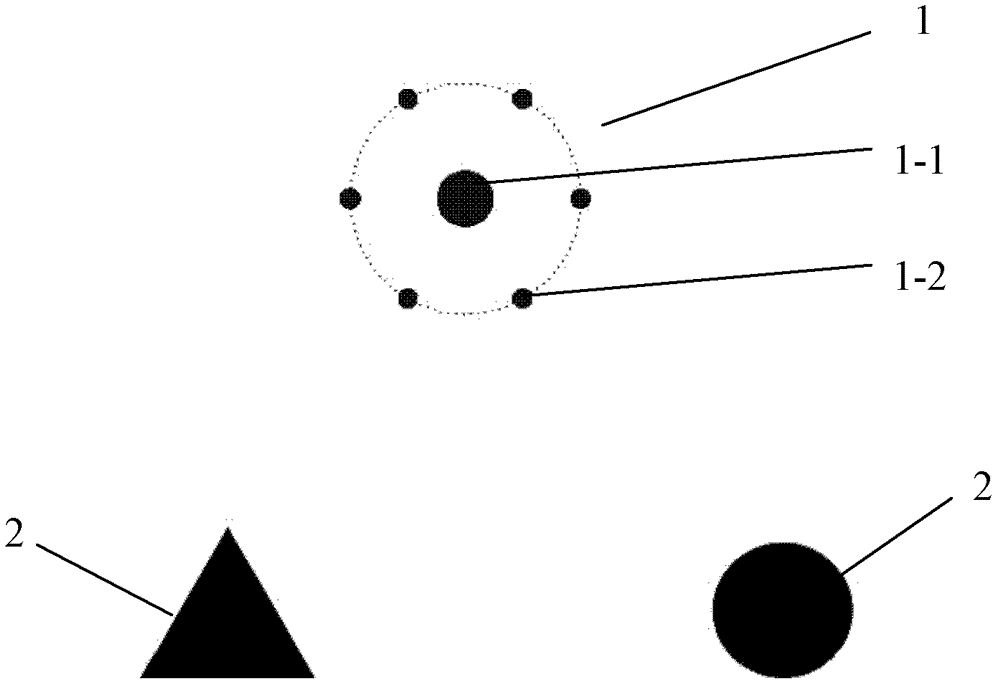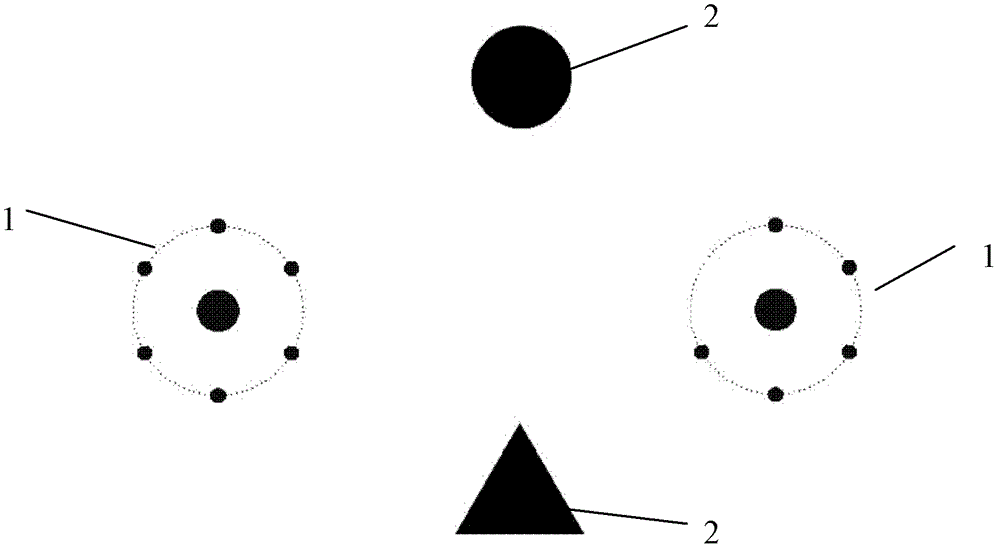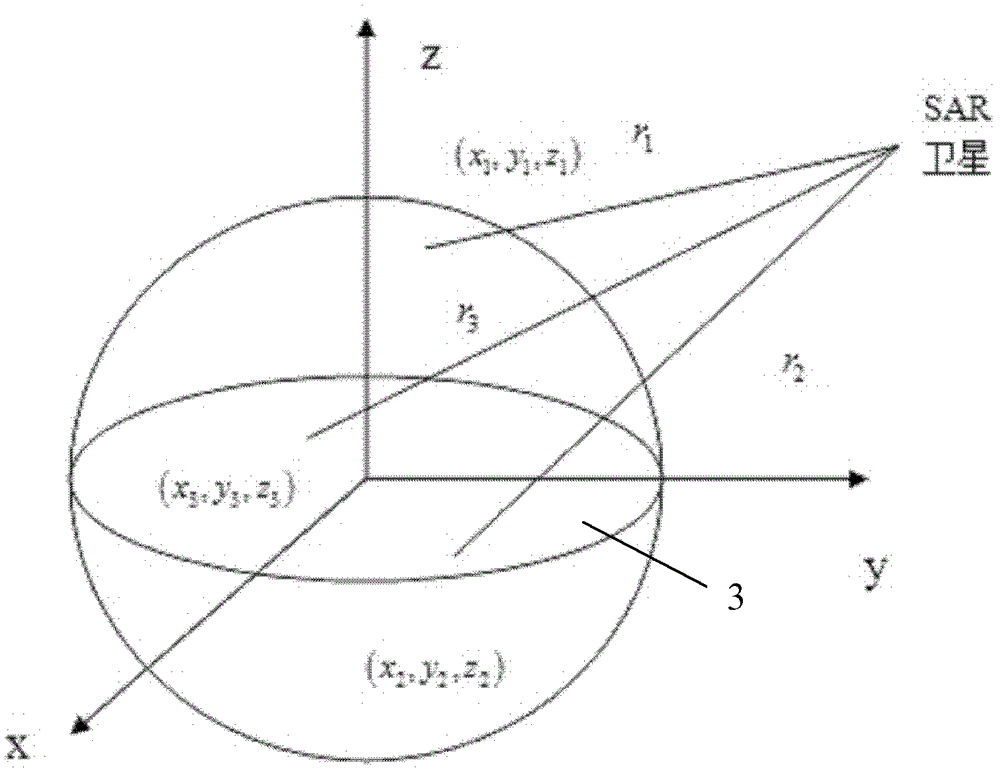Autonomous orbit determination method for satellite based on synthetic aperture radar
A technology of synthetic aperture radar and autonomous orbit determination, which is applied in the directions of radio wave reflection/re-radiation, utilization of re-radiation, measurement devices, etc., which can solve the problem of affecting the accuracy of orbit determination and the inability to realize high-precision real-time autonomous orbit determination of low-orbit satellites, Problems such as poor timeliness
- Summary
- Abstract
- Description
- Claims
- Application Information
AI Technical Summary
Problems solved by technology
Method used
Image
Examples
specific Embodiment approach 1
[0068] Specific implementation mode one: see Figure 1~4 As shown, the satellite autonomous orbit determination method based on synthetic aperture radar described in this embodiment: first, design the artificial ground marker points, including their material, shape, and arrangement, and then place the ground marker points, and measure their The position information in the ground-fixed coordinate system is built into a library and stored in the on-board computer; when the satellite is in orbit, the synthetic aperture radar is used to image the ground. At this time, these ground marking points are recognized by image recognition methods, and are matched with the library stored by the on-board computer to obtain the position information of the marking points, and then the real-time orbit determination of the satellite is completed using the orbit determination equation proposed by the present invention;
[0069] The specific process is:
[0070] Step A, designing the artificial ...
specific Embodiment approach 2
[0133] Embodiment 2: In the satellite autonomous orbit determination method based on synthetic aperture radar described in this embodiment, in step A, the material of the artificial ground marking points is metal.
specific Embodiment approach 3
[0134] Specific implementation mode three: see Figure 1~2 As shown, in the satellite autonomous orbit determination method based on synthetic aperture radar described in this embodiment, in step B, the positioning marker point 1 is a coded positioning marker point, and the coded positioning marker point is composed of a central circle point 1 -1 and a number of small dots 1-2 evenly distributed on its outer circumference; the shape of the two auxiliary marking points 2 is triangle or circle. Other steps are the same as those in Embodiment 1 or 2.
PUM
 Login to View More
Login to View More Abstract
Description
Claims
Application Information
 Login to View More
Login to View More - R&D
- Intellectual Property
- Life Sciences
- Materials
- Tech Scout
- Unparalleled Data Quality
- Higher Quality Content
- 60% Fewer Hallucinations
Browse by: Latest US Patents, China's latest patents, Technical Efficacy Thesaurus, Application Domain, Technology Topic, Popular Technical Reports.
© 2025 PatSnap. All rights reserved.Legal|Privacy policy|Modern Slavery Act Transparency Statement|Sitemap|About US| Contact US: help@patsnap.com



